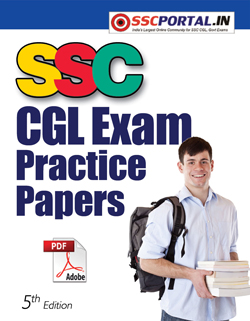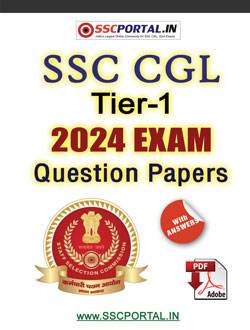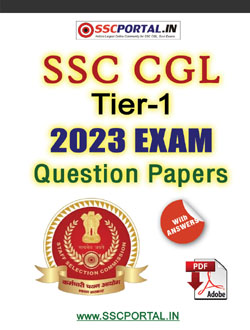Study Material for SSC CGL, CHSL, MTS, Prasar Bharti, FCI Exams : Indian Polity
Indian Polity
Different Sources of the Indian Constitution
Although the skeleton of the constitution was derived from Government of India Act 1935, many provisions were imported from other constitution,, of the world. Some of them are listed below:
- Government of India Act 1935: Federal scheme, office of Governor, power of Federal judiciary, emergency powers etc.
- Constitution of Britain: Law making procedures, rule of law, provision for single citizenship, Parliamentary system of government, office of CAG.
- Constitution of USA: Independence of judiciary. judicial review, fundamental rights, removal of Supreme Court and High Court judges, preamble and functions of Vice-president.
- Constitution of Canada: Federation with strong Centre, to provide residuary powers to the centre.
- Constitution of Ireland: Directive Principles of State policy, method of presidential elections, and the nomination of members to Rajya Sabha by the President,
- Constitution of Germany: Provisions concerning the suspension of fundamental rights during emergency.
- Constitution of Australia: Idea of the Concurrent list.
- Constitution of South Africa: Amendment with 2/3rd majority in Parliament and election of the Members of Rajya Sabha on the basis of proportional representation.
The Preamble
The 42nd Amendment (1976) added the words Secular’ and ‘Socialist’ end now
the Preamble reads as follows:
“We, the people of India having solemnly resolved to constitute India into a
Sovereign, Socialist, Secular, Democratic Republic and to secure to all its
citizens: Justice, social. economic and political; Liberty of thought,
expression, belief, faith and worship Equality of status and of opportunity: and
to promote among them all Fraternity assuring the dignity of the individual and
the unity and integrity of the Nation. In our Constituent Assembly on this
twenty-sixty day November, 1949, we do hereby, Adopt, Enact and Give Ourselves
this Constitution.”
Parts and Articles of the Constitution
• Part I/Articles 1-4 : Territory of India, admission, establishment or
formation of new states
• Part II/Articles 5-11 : Citizenship
• Part III/Articles 12-35 : Fundamental Rights
• Part I V/Articles 36-51 : Directive Principles of State Policy
• Part I V-A/Article 51A : Duties of a citizen of India
• Part V/Articles 52-151 : Government at the Union level
• Part VI/Articles 152-237 : Government at the State level
• Part VII/Article 238 : Repeated by 7th Amendment 1956
• Part VIII/Articles 239-241 : Administration of Union Territories
• Part IX/Articles 242-243 : The Panchayats
• Part IX-A/Articles 243P-243 ZG : The Municipalities
• Part X/Articles 244-244 : A Scheduled and tribal areas
• Part XI/Articles 245-263 : Relations between the Union and States
• Part XMI/Articles 263-300 : A Finance, property, contracts and suits
• Part XIII/Articles 301—307 : Trade, commerce and travel within territory of
India
• Part XIV/Articles 308-323 : Services under the Union and States
• Part XIV-A/Articles 323A-323B : Deals with administrative tribunals
• Part XV/Articles 324-329 : A Election and Election Commission
• Part XVI/Articles 330-342 : Special provision to certain classes SCs/STs, OBCs
and Anglo Indians
• Part XVII/Article 343-351 : Official languages
• Part XVIII/Articles 352-360 : Emergency provisions
• Part XIX/Article 361-367 : Miscellaneous provisions
• Part XX/Article,68 : Amendment of Constitution
• Part XXI/Articles X69-392 : Temporary, transitional and special provisions






